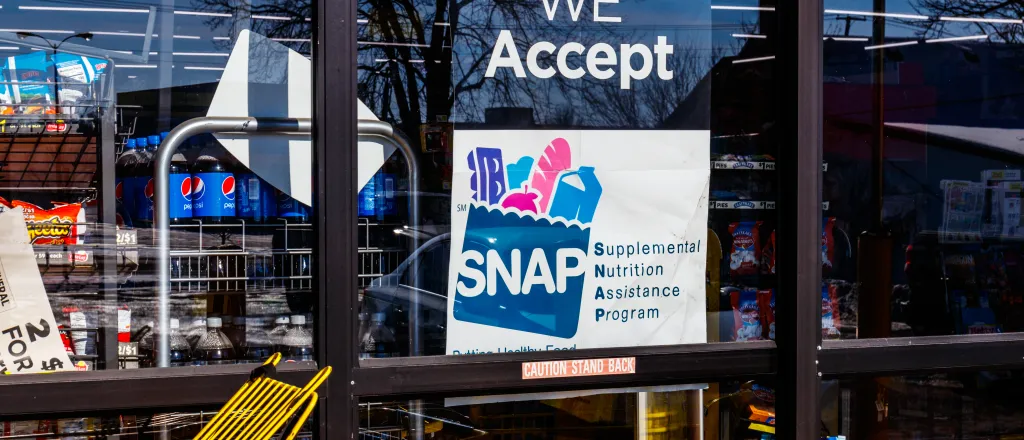
Colorado seeks SNAP waiver to restrict purchase of soda, not food
Click play to listen to this article.
As Colorado moves to bar Supplemental Nutrition Assistance Program participants from using benefits to buy soda and other sugar sweetened beverages, a new report spotlights how restrictions on benefits actually harm people the program is meant to help.
Joel McClurg, executive director of systems for Colorado Blueprint to End Hunger, said restricting what people can or can't purchase with SNAP dollars deepens existing racial and economic inequality.
He said it also opens the door for policymakers to cut already low benefits.
"Now since you can only purchase a fraction of that, can't we have benefits at a much lower level? Which is $6 a day on average right now, it's not a lot," said McClurg. "So, decreasing that would have very negative implications for people on the program."

© Kiwis - iStock-1277932994
Improving public health by eating better is central to U.S. Health and Human Services Secretary Robert F. Kennedy, Jr.'s "Make America Healthy Again" agenda.
Colorado joins Arkansas, Idaho, Indiana and West Virginia in applying for a U.S. Department of Agriculture waiver to allow restrictions on items such as candy, soda and foods considered unhealthy.
Colorado's waiver won't restrict food items, and would allow participants -- many of whom can't access a kitchen -- to purchase prepared foods.
McClurg said SNAP participants eat the same kinds of foods, including junk foods and soda, as nonparticipants. The main reason SNAP families can't eat better is because they can't afford it.
McClurg pointed to a successful rebate pilot that boosted fresh produce intake for SNAP families by more than 25 percent.
"If you really want to change what people are consuming and make diets more healthy," said McClurg, "then you need to look at the data that show that by creating these additional incentives for these foods that cost more -- healthy produce and lean proteins -- that's really how you are going to move the needle."
McClurg said restrictions on SNAP purchases won't solve the nation's food system shortfalls, including food deserts in low income neighborhoods, and transportation challenges for rural families.
"You can't just magically manifest healthier foods in your local corner store," said McClurg, "or have a box of fresh foods show up on somebody's doorstep when they live 60 miles away from the nearest grocery store in rural Colorado."

















